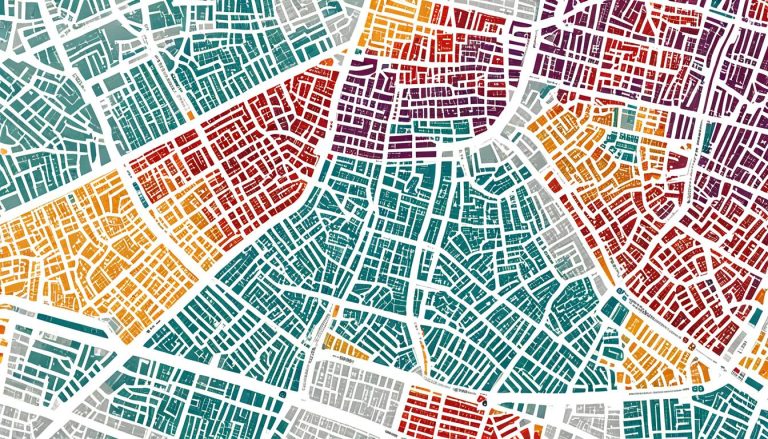Capital Gains Tax (CGT) is a vital consideration for anyone selling property in the United Kingdom. Since tax laws have tightened in recent years, particularly from 6 April 2020 onwards, understanding when and how to report and pay Capital Gains Tax on UK property has become increasingly essential for property owners, both residents and non-residents alike. This guide explains the key rules, deadlines, and procedures involved.
What Is Capital Gains Tax On UK Property And Who Needs To Pay It?

Capital Gains Tax (CGT) is a tax applied when an individual disposes of a property and makes a profit on the sale. The gain, not the full sale price, is subject to taxation. In the UK, CGT primarily affects sellers of second homes, rental properties, or inherited properties not used as a main residence.
Definition And Overview Of Capital Gains Tax (CGT)
CGT is charged on the profit realised when selling or transferring ownership of an asset that has increased in value. This is especially relevant for UK residential property sales where the gain exceeds the tax-free allowance.
When Does CGT Apply To UK Property?
CGT applies in the following scenarios:
- Sale of a buy-to-let or investment property
- Sale of a second home or holiday home
- Sale of inherited property (if not the primary residence)
- Gifting property (excluding to a spouse or charity)
Who Is Liable? – UK Residents And Non-Residents
- UK residents: Liable for CGT if they dispose of UK residential property and the gain exceeds the annual exempt amount.
- Non-residents: Must report all UK property disposals post-6 April 2020, even if no tax is due.
When Do You Need To Report And Pay CGT On UK Property Sales?
Understanding when you must report and pay Capital Gains Tax (CGT) on the sale of UK residential property is critical to remaining compliant with HMRC regulations.
Since April 2020, HMRC has tightened the rules and reduced the reporting window significantly, making timing a key factor in managing your tax responsibilities.
CGT Deadlines Based On Sale Date
The deadline for reporting and paying CGT depends on the completion date of the property sale, not the date contracts were exchanged.
- On or after 27 October 2021: You must report and pay any CGT due within 60 days of the completion date.
- Between 6 April 2020 and 26 October 2021: You were required to report and pay within 30 days of completion.
- Before 6 April 2020: There was no need to use the 30- or 60-day reporting service. Instead, gains were reported in your Self Assessment tax return for the tax year in which the disposal took place.
If you’re unsure of when your completion occurred, it’s defined as the day you legally transfer ownership of the property (i.e. the day money is exchanged and keys are handed over).
Why These Deadlines Matter?
Missing these strict deadlines, even unintentionally, can result in penalties and interest charges. HMRC expects prompt reporting to improve tax compliance and transparency in property transactions.
Here’s what happens if you miss the reporting window:
- Late filing penalty of £100 if the return is up to 3 months late
- Daily penalties of £10 per day (for up to 90 days) if it’s more than 3 months late
- Further fixed or tax-geared penalties if more than 6 or 12 months late
- Interest charged on unpaid CGT from the original due date
These penalties are imposed regardless of whether tax is ultimately owed, so it’s crucial to submit the report even if no CGT is payable due to reliefs or allowances.
Special Rules For Property Sold Before April 2020
If you sold a residential property before 6 April 2020, you are not required to use the new 30- or 60-day digital service. Instead, any gain must be declared on your Self Assessment tax return for the tax year in which the disposal occurred.
For example:
- If a property was sold on 1 March 2020, the gain would need to be reported in the 2019/20 Self Assessment, due by 31 January 2021.
This also applies to non-residents, though they have had reporting obligations since 2015, and must still report property disposals using the Non-Resident CGT return, even if no tax is due.
Situations That Require Immediate Attention
Some property owners may overlook the requirement to report because:
- The property was jointly owned and only one party is handling the sale.
- The property was inherited, and they were unaware CGT still applies.
- There was a belief that tax isn’t due due to the annual exemption, yet the reporting obligation still exists in some cases.
Always check whether you meet the criteria to report, not just whether you owe tax.
CGT Reporting Windows:
| Completion Date of Property Sale | Reporting Deadline | Payment Deadline |
| On or after 27 Oct 2021 | 60 days | 60 days |
| 6 Apr 2020 – 26 Oct 2021 | 30 days | 30 days |
| Before 6 Apr 2020 | Self Assessment | 31 January next tax year |
Timely action is crucial. If you’re unsure about your liability or deadline, it’s advisable to seek professional tax advice or consult HMRC directly to avoid unintended penalties.
How Do You Calculate Your Capital Gain On A UK Property?

Understanding what counts as part of your gain, and what costs can be deducted, is essential for an accurate CGT calculation.
Calculating The Gain – What To Include?
Capital gain is determined using the formula:
Capital Gain = Disposal Value – (Acquisition Cost + Allowable Expenses – Reliefs)
Costs That Can Be Deducted
Some allowable costs include:
- Legal fees for buying and selling
- Estate agent and surveyor fees
- Stamp Duty Land Tax
- Capital improvements (e.g. extensions)
Tax-Free Allowances And Reliefs
Each individual benefits from an annual CGT allowance. For the 2023/24 tax year, this is £6,000.
Eligible reliefs:
- Private Residence Relief
- Lettings Relief (limited and specific conditions apply)
CGT Rates For UK Residential Property
CGT is charged based on the individual’s income tax band.
| Income Band | CGT Rate on Residential Property |
| Basic Rate (up to £50,270) | 18% |
| Higher/Additional Rate | 28% |
How Do You Report Capital Gains Tax To HMRC?
Sellers must report gains within the required period using HMRC’s online portal or, in some cases, paper forms.
Using The Capital Gains Tax On UK Property Account
This is the most common reporting method for residential property gains:
- Accessible via GOV.UK
- Requires Government Gateway login
- Allows return submission, payment, and amendments
Alternative Methods – Paper Forms And Real-Time Service
- Paper forms are allowed where digital access is unavailable or when reporting for someone else.
- The “real time” CGT service is available only for reporting gains on non-property assets within the same tax year.
What Documents and Details are Needed?
Ensure the following are available before starting:
| Information | Description |
| Property address | Full UK address and postcode |
| Acquisition date | When the property was acquired |
| Disposal date | Date of contract exchange and completion |
| Purchase and sale prices | Including valuations if not market sale |
| Improvement costs | Capital improvement expenditures |
| Tax reliefs | Reliefs and exemptions being claimed |
| Property type | Required for non-residents |
| Reference numbers | For previous CGT accounts or returns |
How Can You Pay Your Capital Gains Tax?

Once a gain is reported, sellers must pay CGT using the reference provided by HMRC. Payment methods vary depending on how the return was filed.
Online Payment Options
You can pay using:
- Debit or corporate credit card through HMRC portal
- Bank approval via online banking (when signed in)
- Schedule a payment in advance to avoid delay
Paying By Bank Transfer, Cheque, Or From Overseas
UK Bank Transfers:
Sort Code: 08-32-10
Account Number: 12001020
Account Name: HMRC Shipley
International Payments:
IBAN: GB03BARC20114783977692
BIC: BARCGB22
Cheque:
Payable to: HMRC
Write your CGT payment reference on the back
What Are The Rules For Reporting CGT If You’re A Non-Resident?
If you’re a non-resident of the United Kingdom, you still have tax obligations when it comes to selling or disposing of property or land located in the UK.
The rules for non-residents are distinct from those for UK residents and have become stricter in recent years, particularly after the introduction of new legislation on 6 April 2020. Understanding these rules is crucial to avoid unnecessary penalties and stay compliant with HMRC regulations.
Mandatory Reporting, Even With No Tax Due
Since 6 April 2020, all non-resident individuals and entities must report the disposal of UK property or land to HMRC, regardless of whether any tax is owed.
This means that even if you make a loss or are eligible for full reliefs (such as Private Residence Relief), a report must still be submitted.
This requirement applies to:
- Residential properties
- Commercial properties
- Mixed-use properties
- Land, including rights to land
Failure to report the disposal within the prescribed deadline can result in penalties, even if your final CGT bill is zero.
CGT Deadlines for Non-Residents
The deadlines for non-residents are the same as for UK residents:
- 60 days to report and pay CGT if the completion date was on or after 27 October 2021
- 30 days if the completion date was between 6 April 2020 and 26 October 2021
- If the disposal occurred before 6 April 2020, a Non-Resident Capital Gains Tax return must be filed using the appropriate method available at the time
These timeframes apply from the completion date (not exchange of contracts), and strict penalties apply for non-compliance.
Special Process And Documentation For Non-Residents
When reporting a disposal, non-residents must use the Capital Gains Tax on UK Property Account, just like UK residents. However, there are additional disclosures required, including:
- Type of property (residential, non-residential, or mixed-use)
- Non-residency status during the tax year
- Details of any periods the property was your main home
- Whether the property was let to tenants
- Information about any capital improvements
If you are unable to access or use the online system, you must complete a paper form and post it to HMRC. In such cases, processing may take longer, and the date HMRC receives the return determines whether it was filed on time.
Payment of CGT by Non-Residents
Payment is expected at the same time the report is submitted. Non-residents can pay via:
- Debit or corporate credit card
- Online bank transfer (UK or international)
- Cheque (with CGT reference written on the back)
If you don’t have a UK bank account, you can make payments via international bank transfer. Ensure you use HMRC’s official IBAN and BIC codes, and allow extra time for the payment to reach HMRC’s account.
International Payment Details:
| Payment Field | Details |
| IBAN | GB03BARC20114783977692 |
| BIC | BARCGB22 |
| Bank Name | Barclays Bank PLC |
| Address | 1 Churchill Place, London, E14 5HP |
| Account Name | HMRC Shipley |
Make sure to include your 14-character CGT reference number starting with ‘X’ to ensure the payment is correctly allocated.
Non-Resident Trustees And Corporate Ownership Considerations
If the property is owned by a non-resident trust or corporate entity, the reporting process becomes more complex:
- Trustees must register the trust with HMRC and obtain a Unique Taxpayer Reference (UTR) before reporting the disposal.
- If the corporate trustee cannot use the online reporting system, a paper return must be submitted instead.
- A non-resident trustee may not be required to register with HMRC if the trust does not generate income or gains in the UK, but the CGT disposal still needs to be reported.
- Corporate entities involved in UK property ownership may be subject to Corporation Tax on chargeable gains rather than personal CGT, depending on structure and classification.
It’s important for trustees and corporate owners to check the correct filing and payment obligations, which can differ depending on whether they fall under the corporate tax regime or the individual CGT regime.
Can You Report CGT On Behalf Of Someone Else Or An Estate?

When acting as an executor, trustee, or power of attorney, different procedures apply for CGT reporting.
Requirements For Agents, Executors, And Personal Representatives
To act on someone’s behalf:
- Provide legal authorisation (e.g. lasting power of attorney)
- Include deceased person’s date of death, if relevant
- Use paper form if unable to access the individual’s CGT account
Using Your Own CGT Account Vs Paper Forms
- You cannot use your CGT account to pay another person’s CGT.
- HMRC provides separate instructions after paper submission for payment on behalf of an estate.
Trusts And Special Tax Registration Processes
- Trustees must provide the trust’s Unique Taxpayer Reference (UTR).
- Non-resident trusts that do not register with HMRC and owe no tax must still report using the designated form.
What If You Have Other Capital Gains To Report?
Not all capital gains need to be reported through the CGT property account. The correct method depends on the asset type and when it was disposed of.
Differences Between Property And Other Asset Gains:
Gains from:
- Shares
- Investments
- Non-residential property can be reported via Self Assessment or real-time service.
Using The Self Assessment Or Real-Time Reporting Service:
- Self Assessment: Suitable for multiple or complex gains, including those with reliefs.
- Real-Time Service: Allows reporting during the same tax year, not applicable to property gains.
Reporting Foreign Gains And Complex Situations:
- Gains involving overseas property or assets require additional forms.
- Claiming foreign tax credit relief is only available through Self Assessment.
Conclusion
Understanding how to report and pay Capital Gains Tax on UK property is essential to avoid penalties and ensure compliance with HMRC regulations.
Whether you’re a resident, non-resident, or acting on behalf of someone else, following the correct process and timelines is crucial. Always keep accurate records, calculate gains correctly, and use the appropriate reporting method.
Frequently Asked Questions
What happens if I don’t report CGT on time?
Failure to report within the HMRC deadline can result in penalties and interest on the amount owed.
Can I report multiple property sales in one CGT return?
No, each property sale must be reported separately using the CGT on UK property service.
Do I need to report a loss on a property sale?
Yes, losses should be reported as they can be used to offset future capital gains.
Is CGT due if I gift property to a family member?
Yes, unless the gift is to a spouse or civil partner, the transaction may trigger CGT based on market value.
How long should I keep records of property sales?
HMRC recommends keeping records for at least five years after the 31 January submission deadline.
Can I amend a CGT return submitted online?
Yes, but only if it’s your own return and not from 2022–2023 or earlier.
Does CGT apply to inherited property?
CGT is not due upon inheritance, but it may apply if the property is later sold and a gain is realised.






